Bulletin N° 765
Subject : The Artless Decline of Empire,
and the Aesthetics of Resistance.
16 September 2017
Grenoble, France
Dear Colleagues and Friends of CEIMSA,
If we take a look at the imperialist establishment’s reaction to the rapidly growing BDS Movement around the world (Boycott, Divest and Sanction Israel for crimes against humanity in Gaza and elsewhere), we discover the remarkable influence that Israel has on most of the 535 US lawmakers in Washington D.C. A new Bill has been introduced before Congress to make it a felony punishable by prison to support the non-violent BDS Movement. Such a law would be in violation of the First Amendment guarantee of Freedom of Speech in the US Constitution. This strange and unprecedented legislative move by US lawmakers, some of whom supported the bill without even reading it, was of course initiated by pro-Zionist factions in Israel and America, and it invites analysis. Perhaps our old friend Aristotle can help us understand what is going on here.
Aristotle’s doctrine of the four causes might shed light on why the Israeli nation is systematically depriving Palestinians of electricity, water, and food, forcing them to live in misery and causing much suffering and many deaths, as the world watches:
The material cause could be identified as the homeland of the Palestinians which is coveted by the Israelis and constitutes an essential step for a larger Israeli expansionist strategy. The formal cause must include the traditional European and American interests in maintaining control of the oil-rich area of the Middle East which necessitates aggressive Israeli expansion in the region. The efficient cause we might identify as the esprit-de-corps of a small group of Zionists and their allies who promote identity politics over class interests, who practice ethnic cleansing, and who can mold the thinking of the US congressional body like a lump of clay. And the final cause we might identify as specific American military and financial interests whose support of the Zionist settler colony in the Middle East provides many opportunities for guaranteed profitable investments and future individual career moves.
For more on Palestinian resistance see: https://electronicintifada.net/.
Meanwhile, the larger historical context of this imperialist adventure is required for any dialectical understanding of what is happening. Here we must borrow from Marx and contemporary scholarship. One non-Marxist scholar is the investigative reporter, William Greider, who paradoxically helps us understand the Marxist dialectic that is now under way in his book, Come Home, America (2009). At a glance, Greider's analysis might be described as that of a “social democrat.” Judging from a cursery perusal of this book, the author fails to find a plausible solution to the formidable problems he outlines at the start of the book, beyond reforms in electoral politics and the renewal of representative democracy. Absent from his discourse are any socialist formations, like worker control councils to replace private ownership, and quality of life concerns and collective well-being to replace the private profit motive. His analysis leads him repeatedly to the conclusion that American capitalism can be tamed by new government regulations, which can only be imposed by an enlightened popular uprising. Absent from his prognosis is any idea of actually existing class struggles and how they might be useful in abolishing social classes altogether. This national hymn to bourgeois democracy is short of the much needed deep radical analysis of how our political economy works - and has worked from the start; it serves instead to obscure the fact that all government “representatives” embody a form of alienation, they are simply acting in their own interests, in one way or another, usually at the cost of their constituency, who must be constantly manipulated.
He who is absent is always wrong ! Or put another way, one cannot expect the fox to guard the hen house!
Greider does describe, however, the historic decline of American capitalism and the social consequences of this failure in true colors. Overlooking the historical contradictions of capitalist alienation - reaching back far before the the Twentieth Century - which necessarily produced this state of collapse, Greider spares no details in his portrait of the national catastrophe facing Americans today. We are left with a mechanical realism that must be supplemented with a dialectical material understanding of the dynamics which have brought us to this point. We must look elsewhere to discover the embryonic stages of worker controlled neighborhoods and enterprises and how direct democracy must eventually aim at an egalitarian society without the social class distinctions, which have historically fostered alienation and exploitation from the very beginnings of civilization and which are at this historic juncture obsolete. How to disarm the ruling class as they desperately attempt to retain their power over the rest of us is the burning question of the day.
Nevertheless,
Greider’s expertise on the contemporary capitalist
collapse in America is worth our attention :
The governing
classes’ sour view of the government still prevails. The democratic condition
has not improved but deteriorated further. So has the public’s regard for the
system. Democracy is broken and most Americans seem to know it. Even in
Washington, this is no longer news.
. . .
On the whole,
it has bipartisan origins. Both political parties are implicated in the
country’s darkening prospects; both are reluctant to come clean about momentous
mistakes [sic]. Despite important differences between them, Republicans and
Democrats largely overlap in their ideological convictions and governing
strategies. Neither party has been willing to face its own culpability or
abandon policies that are deeply destructive to the national well-being.
. . .
This is what
the politicians and policy elites don’t want to talk about. I don’t see a nice
way to put it. America as “number one” is over. [This is a one-dimensional view of American power.] The United States is headed for
a fall, a great comeuppance that will impose wrenching changes on our society
and deliver humiliating blows to our national pride. [sic.]As a nation, we will still
be very wealthy and awesomely powerful, but the country’s preeminent economic
strength is steadily deteriorating, as is its ability to dominate other nations
through persuasion or military force. America’s worldly power, wealth, and
status are all rapidly diminishing in historic dimensions. The long and
triumphant era during which America led the world and largely got its way is
approaching an end.
It’s enough
to see why political candidates and the collaborating elites [Are they really in conflict with their class interests?] cannot bring
themselves to talk honestly about this, much less to propose plausible
alternatives that might replace the failing status quo. They dare not even
admit that American power is faltering. In spite of their reluctance to speak
of this honestly, I have a sense that many Americans – perhaps most of them –
know this is happening. Americans feel at least a great, shuddering shadow is
hovering over American life and hard circumstance are converging on the country
like walls closing in around us. A lot of people know it because the
consequences are evident in their daily lives. This will not be the “worst of
times” in American history [for whom?] – the nation is too rich for that – but it may feel
that way to many families. The pain and loss will be distributed widely
throughout society, but very unevenly. Some deeply rooted convictions will be
upended, starting with the enduring faith in onward-and-upward prosperity. That
self-confident assumption is already faltering. For many, it has already
failed.
Given the
deep forces at work, we hardly have a choice about how to react. The country has
to change because, like it or not, the country is going to be changed by events
and adverse forces that will not yield to our can-do optimism.
The third
proposition [in this book] may be the most difficult for readers to envision.
Some will find it implausible. It is something only the people can do: Rescue
the country and redeem ourselves. The country can reinvent itself – it has
before – but only if ordinary Americans find their bearings and reclaim their voices and unrealized power. That is, become citizens
in the fuller meaning of the word. I am convinced that only the unruly energies
of engaged citizens can break through the encrusted status quo and force deep
changes in government and society. Political parties, presidents, and the
governing elites cannot do this. They are too comfortable, too complacent and
self-protective, too embedded in the defunct assumptions inherited from past
glories. If the people do not do this, it will not be done.
A wise
friend, a retired professor named Lee Halprin,
listened to me go on this way about my hope for democratic revival. Then he
interrupted with a question: “Why do you think this is possible?” I had to
pause and think. “The history, I guess,” I said. “This is how it has always
happened.” (pp.4-7)
After
declaring his populist faith in “The People,” Greider
goes on to accurately describe the economic
catastrophe confronting ordinary Americans and people around the world.
These are . .
. taboo propositions in the upper realms of politics and policy. With rare
exceptions, elected politicians discuss them only to fervently deny their
existence. Such talk is derided as “declinist,”
un-American pessimism. Pessimists are losers. Americans are winners.
Nevertheless,
it is in our self-interest to put the substance of our predicament on the table
and examine the hard facts. Five major elements are driving the deterioration
of American prospects.
1.
Globalization’s net negative consequences for the
country.
In 2007,
foreign borrowing totaled nearly $800 billion, roughly 7 percent of the gross
domestic product, what economists call the current accounts deficit. For many
years, the trend resembled slow bleeding. However, during the last decade, the
debt had been a hemorrhage. The United
States has accumulated more than $5 trillion in indebtedness to foreign
creditors over the last fifteen years.
. . .
A central
explanation for the enormous US trade imbalance is that so much US
manufacturing has been transferred to other economies, making the US base of
production relatively weak. Americans how buy from other countries much more of
what we used to produce (and we borrow to do so). As one Asian economist
observed with only mild exaggeration, “The U.S. has little to sell back to
China but Boeing and beef.” America is in a deep hole, wit
its wealth gradually draining away and its long-term prosperity undermined.
To sharpen
the dilemma further, our principal creditors are also out major trading rivals,
let by China and Japan. They lend us hundreds of billions of dollars so we can
keep buying more of their stuff. They will continue to treat us generously
until they decide the United States is no longer a good risk. Or when American consumers are tapped out.
The historic
meaning of this situation is ominous because the swelling capital indebtedness
leads eventually to political dependency or financial ruin ,
and possibly to both. No other wealthy nation has ever experienced such an
extreme level of profligacy or survived as a great power when it had to rely on
money borrowed from lesser nations to stay afloat. Great Britain lost its
“greatness” a century ago for this very reason. The United States is far more
powerful, but it will not be exempt from the laws of compounding debt.
2.
Militarism and its dominance of US foreign policy.
America’s
military power remains truly awesome and spans the globe, but its uses have
been expanded far beyond the original idea of national defense. The military
now attempts to direct other nations’ politics by “protective power” –
deploying troops and forward bases to distant places where no obvious enemy
exits. Meanwhile, in Iraq and Afghanistan, Americans are learning once again –
the hard way – that military force is not necessarily a reliable tool for
modifying other people’s behavior. They tend to resent the presence of
conquering armies, and they resist.
. . .
To what end
are we mobilizing? The logic of this “defense” seems clearly aggressive, but
despite recent failures, both political parties have given the military
institution an open field to play. Some new alliances and deployments are
designed to encircle Russia and China – both identified as potential threats of
the future. No one seems to have notices a bizarre contradiction: US war
planning is targeting our major Asian creditor and its fast-rising economy,
which US multinationals are vigorously helping to develop.
To prepare
for a major war against China or Russia, the Pentagon is going forward with
advanced weapons systems originally designed during the cold war. These new
planes and ships are extraordinarily expensive and arguably obsolete in
strategic terms, but there is very little political resistance to projects that
have long been planned by the arms manufacturers.
Meanwhile,
terrorism has been grandiosely redefined as the new cold war. Bases are being
established in Muslim countries and, more ominously, the military is inserting
thousands of special forces into obscure and very poor
countries where terrorists are thought to pose a potential problem. These
intrusions are in some cases by consent, in others clandestine. The soldiers
undertake civil actions to improve conditions to the local societies, but they
also kill and try to assassinate with selective bombing people who are
suspected of having dangerous intentions.
The Pentagon
has dubbed all this “the Long War.” The preparations assume a generation of
military conflict in large and small wars to be America’s new obligation in
protecting a peaceable world. Indeed, the US government is laying down
potential trip wires for these wars anywhere and everywhere. The strategy is
very costly and largely secretive. It may very well prove to be
self-fulfilling.
3.
The triumph of the free-market ideology and its
destruction of an equitable society.
For the last
thirty years, conservative reforms like the deregulation of industries and
finance and regressive tax cuts gradually eviscerated the government’s
protective mantle. Families were exposed to the harsh edge of market forces.
Businesses and banks were freed to innovate and maximize returns, but also to
discard their long-standing obligations to workers and society. The federal
government essentially switched sides in the enduring contest between capital
and labor.
. . .
But the
conservative order has essentially failed as an economic system and its
advocates are now in political disarray. It failed for practical reasons as
well as its ideological contradictions. The size of government and of federal
subsidies for financial and business interests did not get smaller. Instead,
conservative economics merely withdrew the assurances business had previously
given people whether they were workers or those in need. The “market friendly” regime
failed because it did not lead to the widely shared prosperity its sponsors
promised would appear once they got government out of the way.
In another
era, this economic deterioration would have led to a rapid shift in politics
and the governing agenda, but it is not clear whether Democrats are ready to
pursue significant changes. For three decades, most Democrats gradually
retreated before the rightward march in economic policy or collaborated
actively in making market forces dominant over government interventions. The
social stresses resulting from the gross and growing economic inequality were
occasionally lamented, but even when they held Congress or the White House,
Democrats were largely silent on the wage question.
The disparities
could become politically explosive if a sharp adjustment in the US economy’s
debt-sponsored consumption occurs and families have to choice but to accept
falling living standards. Many already are. The pain and loss will not be
equitably distributed. The least among us will suffer the most, followed by
many millions in
the broad middle. Those at the very top will suffer hardly at all. Social
injustice compounds desperation and anger. The politics of class conflict –
supposedly extinguished by the prosperity that followed World War II – is
making a comeback as America’s enormous middle class is gradually being
dismantled.
4.
The
ecological crisis and the coming scarcity of oil.
Coping with
both of these requires a profound industrial transformation- the thorough
redesign and retooling of virtually every product and production process.
Everything from packing to buildings and transportation systems must be
redesigned, and everything form eliminating wasted fuel and other resources to
recovering spent industrial materials and using them again in production will
have to be instituted. The first impact this reformation will have is to raise
the price of nearly everything. Material pleasures that are commonplace in
American life will have to undergo wrenching examination or changes, and some
will be eliminated. The carefree mass-consumption society that we have known
since World War II is essentially done for.
. . .
The good
news, we can say, is that these fundamental changes are technologically
possible and potentially life enhancing. Indeed, the transition can proceed on
positive terms by creating new industries and jobs, improving the design and
durability of goods, and saving by improving efficiency rather than expanding
our careless excesses.
At first, however,
there will be no escaping the current predicament’s implications for greater
social injustice of the costs of transformation are pushed upon those least
able to afford it. In a country already fractured by economic inequality, with
millions of families struggling to hand on with inadequate incomes, doing “the
right thing” about global warming or energy alternatives might simply worsen
the pain by making it impossible for working people to afford everyday products
they now can manage. That dilemma is one of the reasons the political order has
been so reluctant to face up to the problems. As the tragedy of Hurricane
Katrina illustrated, the United States has a huge backlog of neglected public
works the political system has ignored.
5.
Our decayed democracy and the paralysis of reform.
The political
factor trumps all the others. Major policy shifts that could begin to address
these large wounds have been effectively stymied. The same business and
financial interests that profit robustly from the status quo stand in the way.
Representative democracy has been captured and deformed by these interests, and
the voters are distanced from those in power. Both parties collude to insulate
themselves from voter retribution.
Not long ago,
I heard a health care expert, Bruce Vladek, recount the failure to institute health care reform during
the Clinton administration. The American people, he pointed out, are
overwhelmingly in favor of strong federal intervention to reform the health
care system. A majority of the public has wanted this for decades.
“It doesn’t
matter what the American public think,” Vladek told
attendees at the policy conference in New York. Policy on the issue, he
explained, is controlled by four or five business sectors led by the insurance
and pharmaceutical industries. Reform can happen, but only on their terms.
. . .
Similar
barriers stand in the way of virtually all the major imperatives I have
described. Each of the five threatening elements involves an epic political
struggle and requires difficult-to-achieve reversals. In fact, the adverse
forces are now interacting in vicious crosscurrents that add confusion to
Washington’s usual risk avoidance: Rising oil prices, which make it more
difficult for politicians to enact the industrial changes needed to curb global
warming, have been pushed upward by the costly military venture in Iraq, which
has also deepened our dependence on foreign borrowing. Was the war in Iraq
really designed not to combat terrorism, but to ensure US domination of Middle East
oil? Only a transformed political system will have the courage to sort out
these and other contradictions. Washington, I fear, will not find its nerve
unless citizens rise up and force them to get serious about resolving the
country’s deepening dilemmas.
A new
president could not reasonably be expected to sort all of
this out by himself or in a single term, though he can begin by talking
more honestly about the dimensions of what we face. He will need more than
earnest good intentions. I fear that there will be no significant changes
unless the broad ranks of citizens engage directly in the fight.(pp.16-22)
The
many problems that Greider discusses in this
book are shared perceptions by most of us today. From these perceptions, there
is reason to believe that a class consciousness will manifest itself, and
rational strategies for a truly democratic revolution will be discussed openly, for by any standards of jurisprudence since the Second World War, simply following orders or obeying the law does not absolve one from responsibility for crimes against humanity.
The
21 items below should help CEIMSA readers asses
the powerful forces which oppose any change that would improve life for all of us.
As we can see, capitalism is resilient and can co-opt and/or intimidate much of
its opposition. It is only by understanding the
dialectical movements within the structure that we can find opportunities to
act on our own behalf. We encourage readers to look for these moments in the
current events described below.
Sincerely,
Francis Feeley
Professor emeritus of
American Studies
University
Grenoble-Alpes
Director of Research
University of
Paris-Nanterre
Center for the Advanced
Study of American Institutions and Social Movements
The University of
California-San Diego
a.
Pink Floyd Founder Roger Waters: BDS is One of "Most Admirable" Displays of Resistance in
the World
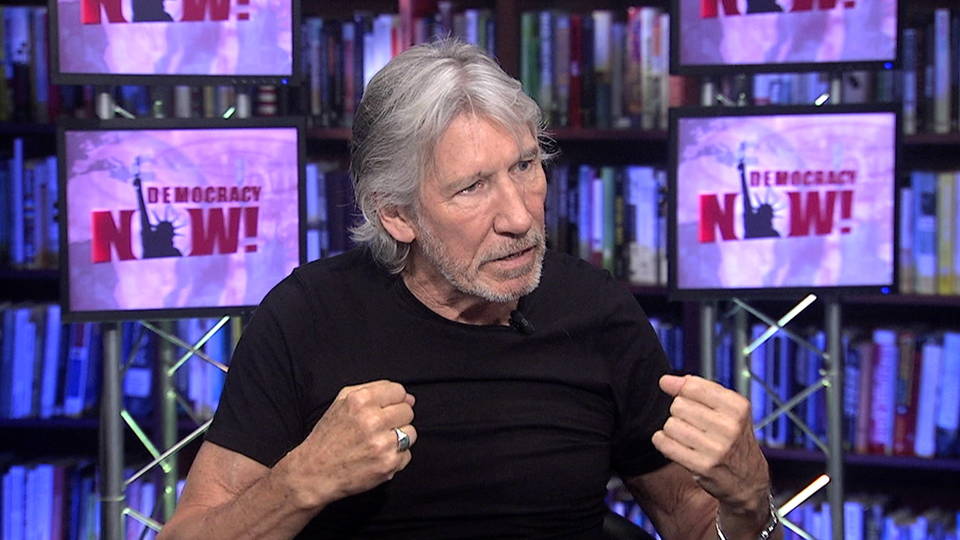
https://www.democracynow.org/2017/9/14/pink_floyd_founder_roger_waters_bds
+
http://mediaed.org/occupationmovie/
===========
b.
UNCTAD Report:
50 Year Occupation Destroyed Palestinian Economy

A scathing report from
United Nations Conference on Trade and Development describes how 50 years of
Israeli occupation has prevented economic development in Palestine, and
highlights the destructive impact of Israel's illegal settlements in the West
Bank
===========
c.
Steve
Bannon Declares War On The
GOP

http://www.informationclearinghouse.info/47791.htm
Watch
- 60 Minutes - The Full Interview
(Posted
September 12, 2017)
Steve Bannon, Trump's ex-chief strategist, tells 60 Minutes why
he's out at the White House and criticizes the GOP for not supporting the
president. "They're gonna be held
accountable," he says. Charlie Rose reports. Bannon,
Trump's ex-chief strategist, tells why he's out at the White House.
===========
d.
Kleptocracy in America
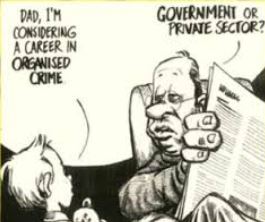
http://www.informationclearinghouse.info/47808.htm
by Sarah Chayes
"Drain the swamp!” the U.S. Republican presidential
candidate Donald Trump shouted at campaign
rallies last year. The crowds roared; he won. “Our political system is
corrupt!” the Democratic candidate Bernie Sanders thundered at his own rallies.
His approval rating now stands at around 60 percent, dwarfing that of any other
national-level elected official. Although many aspects of U.S. politics may be
confusing, Americans are clearly more agitated about corruption than they have been in
nearly a century, in ways that much of the political mainstream does not quite
grasp. The topic has never been central to either major party’s platform, and
top officials tend to conflate what is legal with what is uncorrupt, speaking a
completely different language from that of their constituents.
===========
e.
HURRICANES IRMA AND HARVEY CAST
SPOTLIGHT ON TOXIC THREATS IN OUR MIDST

by Diane Carman
===========
f.
Fake 9/11 Activism on 9/11. “Saudi Arabia was
Behind the Attacks”

https://www.globalresearch.ca/fake-911-activism-on-911-saudi-arabia-was-behind-the-attacks/5608420
by Prof Michel Chossudovsky
There is
an element of confusion which has served to divide the 9/11 Truth movement.
Saudi Arabia is said to have supported the alleged 9/11 highjackers.
What are the implications of “the Saudi did it”
narrative?
===========
g.
“The Occupation of the American Mind” with
Pink Floyd's Roger Waters - WATCH FULL INTERVIEW
https://www.youtube.com/watch?v=LD7mOyfclIk
===========
h.
16
Years Ago, We Began A “War On Terror” That Will Never
End
http://www.informationclearinghouse.info/47801.htm
by Rare
On
the 16th anniversary of 9/11, a prescient Hunter S. Thompson column
from the day after the attacks was shared on social media. Thompson wrote at ESPN on Sept. 12, 2001:
The
towers are gone now, reduced to bloody rubble, along with all hopes for Peace
in Our Time, in the United States or any other country.
Make
no mistake about it: We are At War now — with somebody — and we will stay At
War with that mysterious Enemy for the rest of our lives.
Thompson
couldn’t have been more right. More than a decade and a half since the
attacks, the United States has led regime change in Iraq and Libya and is still
bogged down in the longest war in American history in Afghanistan. During that
time, Al-Qaeda has been diminished but remains. A group even more extreme that
al-Qaeda, the Islamic State (also sometimes known as ISIS), has risen in the
power vacuums created by U.S. interventions.
===========
i.
The Superpower That Fought Itself -- And Lost
Out Everywhere and Winning Nowhere
http://www.informationclearinghouse.info/47794.htm
by William J. Astore
When
it comes to the “world’s greatest military,”
the news has been shocking. Two fast U.S. Navy ships colliding with
slow-moving commercial vessels with tragic loss of life. An Air Force that has been in the air continuously for years and
yet doesn’t have enough
pilots to fly its combat jets. Ground troops who find themselves fighting “rebels” in Syria previously armed and
trained by the CIA.
Already overstretched Special
Operations forces facing growing demands as
their rates of mental distress and suicide rise.
Proxy armies in Iraq and Afghanistan that are unreliable, often
delivering American-provided weaponryto black markets and
into the hands of various enemies. All of this and more coming at a time
when defense spending is once again soaring and the national security state is
awash in funds to the tune of nearly a trillion dollars a
year.
What
gives? Why are highly maneuverable and sophisticated naval ships colliding
with lumbering cargo vessels? Why is an Air Force that exists to fly and
fight short 1,200 pilots? Why are U.S. Special
Operations forces deployed everywhere and winning nowhere? Why, in
short, is the U.S. military fighting itself -- and losing?
===========
j.
From: Jim O'Brien
Sent: Monday, 11 September, 2017
Subject: [H-Pad] H-PAD Notes (formerly HAW Notes) 9/11/17,
including links to recent articles of interest
https://www.historiansforpeace.org/
Note: Historians for Peace
and Democracy is among the sponsoring groups for the "Remembering Muted
Voices" symposium October 19-22 at the National World War I Museum in
Kansas City. The symposium evokes the story of dissent and repression during
World War I and links it to subsequent U.S. history up to the present.
Information is at https://www.theworldwar.org/learn/remembering-muted-voices.
Links to Recent Articles of Interest
“Seven Steps to a Saner U.S. Policy Towards
North Korea”
By Andrew J. Bacevich, The
American Conservative, posted September 8
The author is a professor emeritus of
history and international relations at Boston University.
“Ten Points on Korean History of Potential Current
Relevance”
By Gary Leupp, CounterPunch.com,
posted September 7
The author teaches history at Tufts
University.
“Worth Dying For? When It
Comes to the War in the Greater Middle East, Maybe
We’re the Bad Guys”
By Danny Sjursen, TomDispatch.com,
posted September 7
The author is a U.S. Army military
strategist with the rank of major and a former history instructor at West
Point.
“The Huddled Masses Were Never Welcome”
By Kevin Young, CounterPunch,com, posted September
5
The author teaches history at the University of Massachusetts Amherst.
“Mass Mobilization Stopped Nuclear War Before and It Can
Again”
Interview with Lawrence S. Wittner, Waging Nonviolence, posted
September 5
The interviewee is a professor emeritus of history at SUNY Albany.
"To
This German Historian, the Implications of Trump’s Pardon of Sheriff Arpaio Are Ominous”
By Richard E. Frankel, History News
Network, posted August 31
The author teaches German history at the
University of Louisiana, Lafayette.
By Rod Nordland, New
York Times, posted August 29
A wonderfully illustrated history of foreign powers in Afghanistan
“What Trump’s Generation Learned about the Civil War”
By Matt Ford, The
Atlantic, posted August 28
“Exploring the Shadows on America’s Security State, or How I Learned Not to Love Big Brother”
By Alfred W. McCoy, posted August
24
The author teaches history at the University
of Wisconsin. This is an adapted version of his new book In the
Shadows of the American Century: The Rise and Decline of U.S. Global Power.
“What the Cuban Missile Crisis Can Teach Us about the North
Korean Missile Crisis”
By Martin J. Sherwin, The
Nation, posted August 23
The author teaches history at George Mason
University.
“How the Forever War Brought Us Donald Trump”
By Jedediah
Purdy, Dissent magazine blog, posted August 22
On the Afghanistan war in US politics and policy
__________________
Thanks to Rusti Eisenberg, John Gay, Mim
Jackson, Kevin Young, and an anonymous reader for suggesting articles for the
above list. Suggestions can be sent to jimobrien48@gmail.com.
===========
k.
Clinton
Democrats Hate the Left - RAI with Thomas Frank (4/6)
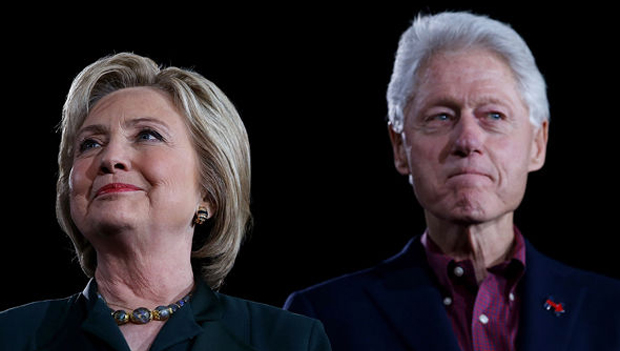
On Reality Asserts Itself, Thomas
Frank, author of 'What's the Matter with Kansas?' and 'Listen, LIberal,' tells host Paul Jay that Bill Clinton tried to
drive the left from the party; now Clinton Democrats blame the left for
Hillary's defeat.
===========
l.
Unpopular Abbas Targets Palestinian Critics

http://therealnews.com/t2/story:19980:Unpopular-Abbas-Targets-Palestinian-Critics
The Palestinian Authority's arrest of prominent
human rights activist Issa Amro is part of a wider
crackdown on critics of Mahmoud Abbas'
rule, says Ali Abunimah of The
Electronic Intifada.
===========
m.
Myanmar:
Why the World Turns a Blind Eye to Another
Muslim
Genocide

http://www.informationclearinghouse.info/47793.htm
by CJ Werleman
If the apartheid state of Israel has taught the world anything,
it’s if you wish to garner Western sympathy for your efforts to colonize,
occupy, or ethnically cleanse a predominately Muslim population, your best bet
is to stigmatize those you wish to conquer or suppress as “radical Islamic
terrorists.”
===========
n.
The
Genocide of the Rohingya: Big Oil, Failed Democracy
and
False Prophets

http://www.informationclearinghouse.info/47796.htm
by Ramzy
Baroud
To a certain extent, Aung San Suu Kyi is a false prophet.
Glorified by the west for many years, she was made a ‘democracy icon’ because
she opposed the same forces in her country, Burma, at the time that the US-led
western coalition isolated Rangoon for its alliance with China.
===========
o.
School
Segregation is Making a Comeback
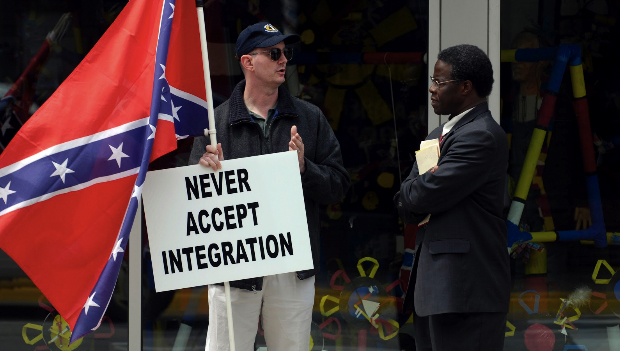
http://therealnews.com/t2/story:19973:School-Segregation-is-Making-a-Comeback
The
U.S. education system was designed to favor the white and the rich, and you
'don't have to wave a confederate flag or have a statue of Robert E. Lee to
effectively secede from your court-mandated school-desegregation order,' says
the Black Agenda Report's Glen Ford
===========
p.
Single-Payer
Healthcare Takes a Big Step Forward
http://therealnews.com/t2/story:19985:Single-Payer-Healthcare-Takes-a-Big-Step-Forward
Wednesday was a
historic day in the U.S. struggle for universal health care as key Senate
Democrats joined Sen. Bernie Sanders to unveil a single-payer bill. We speak to
economist Dean Baker and Saikat Chakrabarti
of Brand New Congress
===========
q.
A New Clash Looms in Syria's East

http://www.informationclearinghouse.info/47795.htm
by Moon Of Alabama
When
the Islamic State siege on Deir Ezzor
was broken by the Syrian Arab Army we asked:
Will
the SAA cross the Euphrates at Deir Ezzor to retake the valuable oilfields east of it? Or will it
stay south of the river and leave those oil fields to the Kurdish U.S. proxies
in the north? Just like during the "Anbar
Awaking" in its war on Iraq the U.S. is bribing the local radicals to
temporarily change over to its side.
This
will help the U.S. to claim that it defeated ISIS. But as soon as the payments
stop the very same forces will revert back to their old game. Originally the
U.S. had planned to let ISIS take Deir Ezzor. It had twice attacked Syrian government forces in
the area killing more than a hundred of them. This had allowed ISIS to capture
large chunks of the government enclave and to disable the airport which was
need for resupplies:
===========
r.
Yanis
Varoufakis blows the lid on Europe's hidden agenda
https://www.youtube.com/watch?v=nGt82RFfg3U
===========
s.
Cognitive Science Series, 2017 presents Noam Chomsky on :
“Mind and Body”
https://www.youtube.com/watch?v=_7iwIlGFfE4
“The Emerging World Order”
https://www.youtube.com/watch?v=wLX9aAWxyKE
“Problems of Knowledge & Freedom”
https://www.youtube.com/watch?v=QjCbkpPJeZ0
"The So-Called Rise of China"
https://www.youtube.com/watch?v=Y4GHrT_hhmg
“Who Owns the World?”
https://www.youtube.com/watch?v=_9CHtm2qK2g
https://chomsky.info/20121026/
(written text)
“Surviving the 21st Century”
https://www.youtube.com/watch?v=ZpigJbLyGC4
“Democracy Is a Threat to Any Power System”
https://www.youtube.com/watch?v=rZoZzbHZkgw
"The Crisis of Immigration" [New
Lecture + Q&A]
https://www.youtube.com/watch?v=ttSxhONuPRM
“Economic Collapse & Dollar Collapse
Today”
https://www.youtube.com/watch?v=TtKs5dqwrqI
"Making The Future: Hopes and
Challenges" [New Interview with Wallace Shawn]
https://www.youtube.com/watch?v=f13Rc078sL0
===========
t.
Senate Refuses
to Stop Endless War
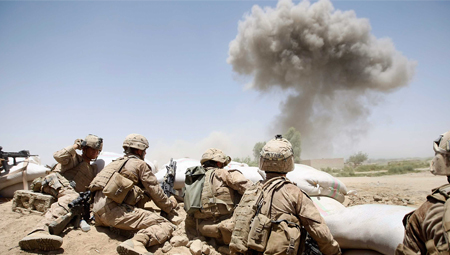
http://therealnews.com/t2/story:19997:Senate-Refuses-to-Stop-Endless-War
Sixteen years after
its passage, the Senate has rejected an effort to repeal the Congressional
authorization that has been used as a blank check for military action around
the globe, says David Swanson of World Beyond War
===========
u.
Israel, White House Abandon Pretense of Peace
Process

http://www.informationclearinghouse.info/47789.htm
by
Geoffrey Aronson
Resolving conflict now
an 'artifact of history' and Trump appears to care less.